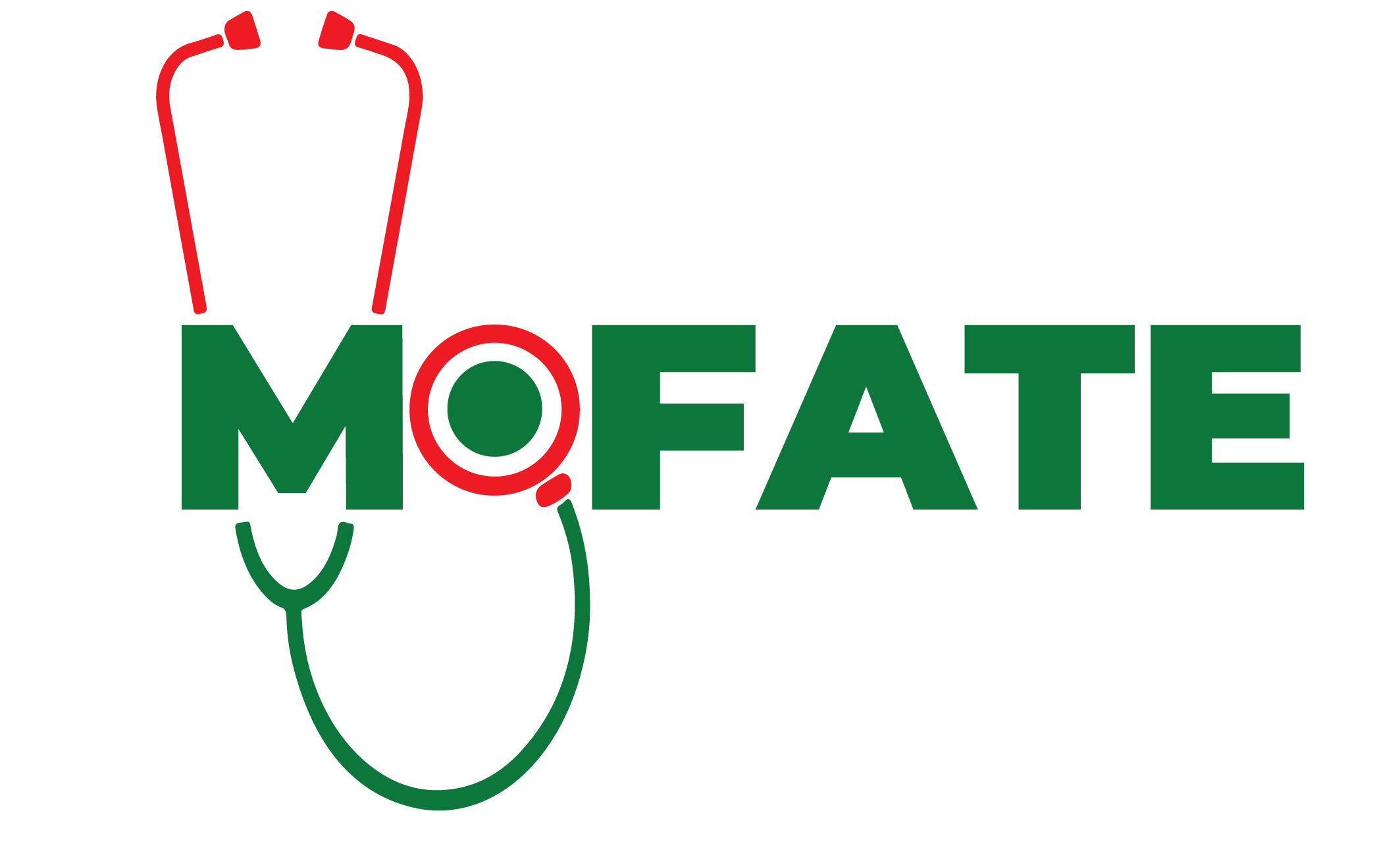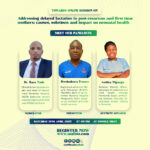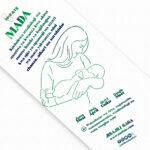Dear esteemed nurses and midwives,
The Mobile Facilitation Team (MOFATE) is pleased to invite you to an enlightening online professional conference on:
“The Multifaceted Roles of Nurses: Independent, dependent, and collaborative in Healthcare”
📅 Date: 26 April 2025
⏰ Time: 07:00 – 09:00 PM (EAT)
📍 Platform: Google Meet
This conference will explore the dynamic roles of nurses in delivering quality healthcare, highlighting their independent, dependent, and collaborative responsibilities in clinical practice. Engage with experts, expand your knowledge, and connect with fellow professionals.
🔹 Registration: Open from 20 – 25 April 2025 at www.mofate.com
Do not miss this opportunity to enhance your professional practice!
TOPIC OVERVIEW
1. Introduction
Nursing is a dynamic and integral component of the healthcare system, where nurses assume diverse roles to ensure quality patient care. The classification of nursing roles into independent, dependent, and collaborative practices defines the scope of their professional autonomy, interdisciplinary engagement, and accountability. This paper presents a scientific analysis of these multifaceted roles, emphasizing their significance in nursing practice and the necessity of discussing them within the nursing profession.
2. Independent nursing roles
Independent nursing roles encompass actions and decisions that nurses undertake autonomously, based on their professional judgment and competencies. These include:
- Assessment and diagnosis: Advanced practice nurses (APNs), nurse practitioners (NPs), and registered nurses (RNs) conduct patient assessments, analyze symptoms, and establish nursing diagnoses (Blais & Hayes, 2023).
- Patient education and counseling: Nurses play a crucial role in health promotion by educating patients on disease prevention, medication adherence, and lifestyle modifications (Potter et al., 2022).
- Preventive and primary care: Community and public health nurses engage in immunization programs, maternal and child health interventions, and chronic disease management (WHO, 2022).
Evidence-based practice (EBP) supports independent nursing roles by integrating research findings into clinical decision-making, improving patient outcomes, and ensuring efficient healthcare delivery (Melnyk & Fineout-Overholt, 2022).
3. Dependent nursing roles
Dependent roles require nurses to function under the direction of physicians or other healthcare providers. These include:
- Medication administration: Nurses administer prescribed medications, ensuring patient safety and monitoring for adverse effects (Kee et al., 2021).
- Medical procedures and treatments: Nurses perform interventions such as wound care, catheterization, and intravenous (IV) therapy as directed by physicians (Smeltzer et al., 2022).
- Postoperative and acute care monitoring: In critical care settings, nurses manage patient stabilization and respond to physician orders for interventions (AACN, 2022).
Despite the directive nature of these roles, nursing knowledge and critical thinking are essential for ensuring that medical orders align with patient needs and safety standards.
4. Collaborative nursing roles
Collaboration in nursing involves interdisciplinary teamwork, where nurses coordinate with physicians, therapists, social workers, and other professionals to enhance patient care. Collaborative roles include:
- Care coordination and case management: Nurses serve as liaisons between different healthcare providers, ensuring seamless transitions and continuity of care (American Nurses Association [ANA], 2023).
- Interdisciplinary rounds and decision-making: Nurses contribute to patient care planning meetings, offering insights based on direct patient interactions (Hughes, 2021).
- Policy development and advocacy: Nurses influence healthcare policies and advocate for patient rights, access to care, and professional standards (IOM, 2021).
Collaboration is integral to patient-centered care, reducing hospital readmissions, minimizing medical errors, and improving patient satisfaction (Institute for Healthcare Improvement [IHI], 2022).
5. The importance of discussing multifaceted nursing roles
Addressing the independent, dependent, and collaborative roles of nurses is crucial for:
- Enhancing professional identity: Understanding role distinctions empowers nurses to advocate for expanded practice authority and recognition.
- Improving patient outcomes: Evidence-based discussions facilitate informed decision-making, optimizing care delivery (Aiken et al., 2022).
- Strengthening interprofessional relationships: Discussing collaborative roles fosters effective communication and teamwork.
- Guiding policy and education reforms: Awareness of nursing roles influences curriculum development and policy adjustments in healthcare settings (Benner et al., 2021).
6. Conclusion
The multifaceted roles of nurses; independent, dependent, and collaborative underscore their significance in patient care and healthcare systems. As nursing continues to evolve, discussions centered on these roles, supported by evidence-based practice, are essential for advancing the profession, enhancing patient safety, and promoting high-quality care. Future research should explore policy implications and the integration of technology in nursing roles to further enhance clinical efficiency and patient outcomes.
References
- Aiken, L. H., et al. (2022). Impacts of Nurse Staffing and Work Environment on Patient Outcomes. Journal of Nursing Management, 30(4), 475-486.
- American Nurses Association (ANA). (2023). Nursing: Scope and Standards of Practice. Silver Spring, MD.
- Blais, K., & Hayes, J. S. (2023). Professional Nursing Practice: Concepts and Perspectives. Pearson.
- Benner, P., et al. (2021). Educating Nurses: A Call for Radical Transformation. Jossey-Bass.
- Hughes, R. G. (2021). Patient Safety and Quality: An Evidence-Based Handbook for Nurses. Agency for Healthcare Research and Quality (AHRQ).
- Institute for Healthcare Improvement (IHI). (2022). Interprofessional Collaboration in Healthcare. Cambridge, MA.
- Institute of Medicine (IOM). (2021). The Future of Nursing: Leading Change, Advancing Health. National Academies Press.
- Kee, J. L., et al. (2021). Pharmacology: A Nursing Process Approach. Elsevier.
- Melnyk, B. M., & Fineout-Overholt, E. (2022). Evidence-Based Practice in Nursing & Healthcare: A Guide to Best Practice. Wolters Kluwer.
- Potter, P. A., et al. (2022). Fundamentals of Nursing. Elsevier.
- Smeltzer, S. C., et al. (2022). Brunner & Suddarth’s Textbook of Medical-Surgical Nursing. Wolters Kluwer.
- World Health Organization (WHO). (2022). State of the World’s Nursing 2022: Investing in Education, Jobs, and Leadership. Geneva, Switzerland.
MEET OUR PANELISTS

A distinguished professional with a BSc N, MSc in Critical Care and Trauma, and a PhD in Cardio-oncology, serves as a dedicated lecturer in the Department of Clinical Nursing at UDOM. With limitless achievements in training institutes and clinical settings, Dr. Bankanie brings a wealth of experience as both a nurse and midwife, enriching the healthcare landscape with expertise and innovation. He brings over 15 years of extensive experience in teaching nurses and midwives across all educational levels, from certificate programs to master’s degrees. Additionally, he has a robust background in facilitation and teaching both domestically and internationally.

A distinguished professional in the field of nursing and critical care. Mr. Safari holds a Master’s degree in Critical Care and Trauma and is currently serving at the Mbeya Zonal Referral Hospital. In addition to his clinical duties, he is the Block Manager at the Surgical Department, showcasing his exceptional leadership skills and dedication to patient care. Mr. Safari is also the esteemed President of the Tanzania Critical Care Association, reflecting his commitment to advancing critical care practices in the country. With over 15 years of experience in providing top-notch nursing care services, he brings a wealth of knowledge and expertise to any setting.

A Tanzanian academic and healthcare professional, currently Head of Nursing Management and Education at the University of Dodoma. With a PhD in health sciences, his research focuses on adolescent sexual health, cancer screening, antenatal care, nursing education, and public health. A seasoned researcher and consultant, he has contributed to multiple health projects and peer-reviewed publications. Beyond academia, he trains peer educators, mentors doctoral students, and consults on adolescent health initiatives. With over two decades of experience, including roles in mental health and nursing leadership, Dr. Millanzi remains a key figure in advancing nursing education and public health in Tanzania.




Good Job and God History 👍